Group
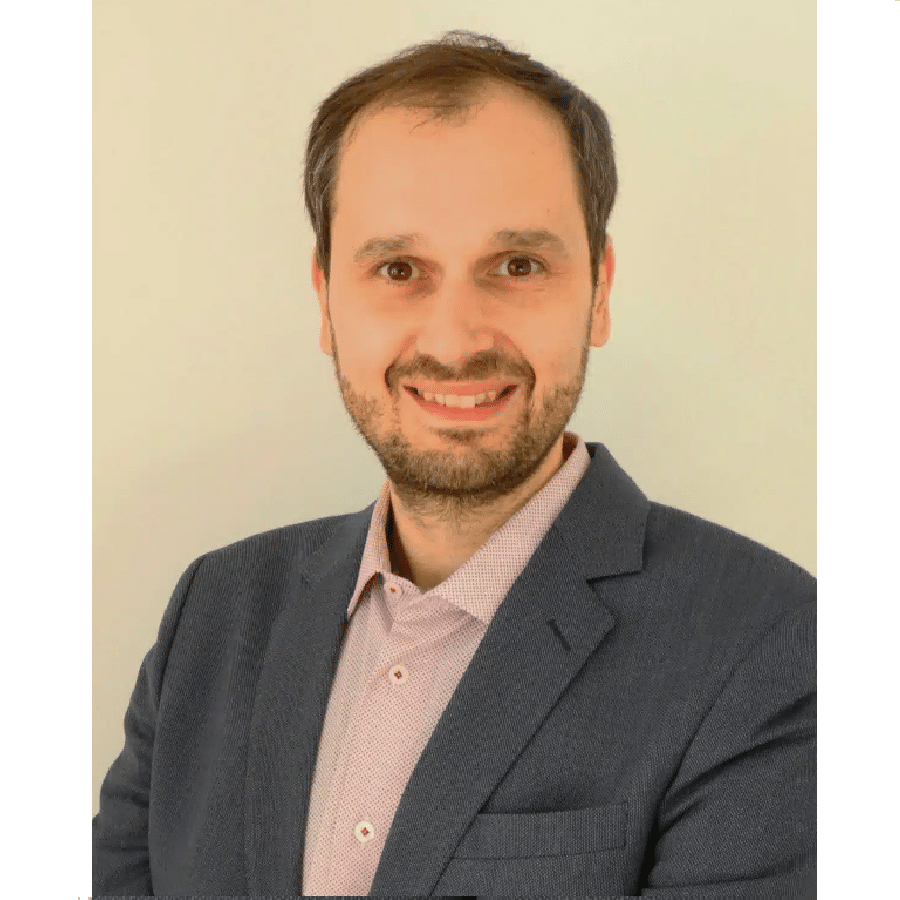
Paschalis Gkoupidenis
Associate Professor of ECE & Physics
Carbon Electronics Cluster (PI)
email: pgkoupi@ncsu.edu
Paschalis Gkoupidenis earned his PhD in materials science from NCSR “Demokritos”, Athens, Greece, in 2014. During his PhD, his research focused on ionic transport mechanisms of organic electrolytes, physics of ionic-based devices, and of non-volatile memories. Following his PhD, in 2015 he joined the group of George Malliaras at the Department of Bioelectronics (EMSE, France) as a postdoctoral researcher. At the Department of Bioelectronics, his research focused on the design and development of organic neuromorphic devices based on electrochemical concepts. In 2017, Paschalis Gkoupidenis joined as a Group Leader, the Department of Molecular Electronics of the Max Planck Institute for Polymer Research. He is currently leading the group Organic Neuromorphic Electronics. Since August 2024, he is an Associate Professor at the North Carolina State University (Department of Electrical and Computer Engineering & Physics).
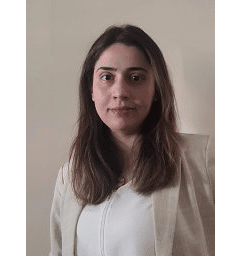
Somayeh Kashani
Postdoctoral Researcher (NC State)
email: skashan@ncsu.edu
Somayeh received her Ph.D. in Physics from North Carolina State University in 2023, where she investigated the optoelectronic properties of organic semiconductors and organic photovoltaics under the mentorship of Prof. Harald Ade. During her doctoral studies, she developed extensive expertise in the characterization of organic semiconductor materials and photovoltaic devices using a range of advanced techniques. From July 2023 to July 2024, she worked as a postdoctoral researcher on a project focused on the doping of organic polymers, supported by a five-year Multidisciplinary University Research Initiative (MURI) led by Prof. Wei You at UNC-Chapel Hill. This collaborative project brought together researchers from UNC, NC State, the University of Washington, and Iowa State University. In 2024, Somayeh joined the Gkoupidenis group at NC State University, where her research focuses on the development of organic neuromorphic electronics for various bio-realistic sensing and computing applications.
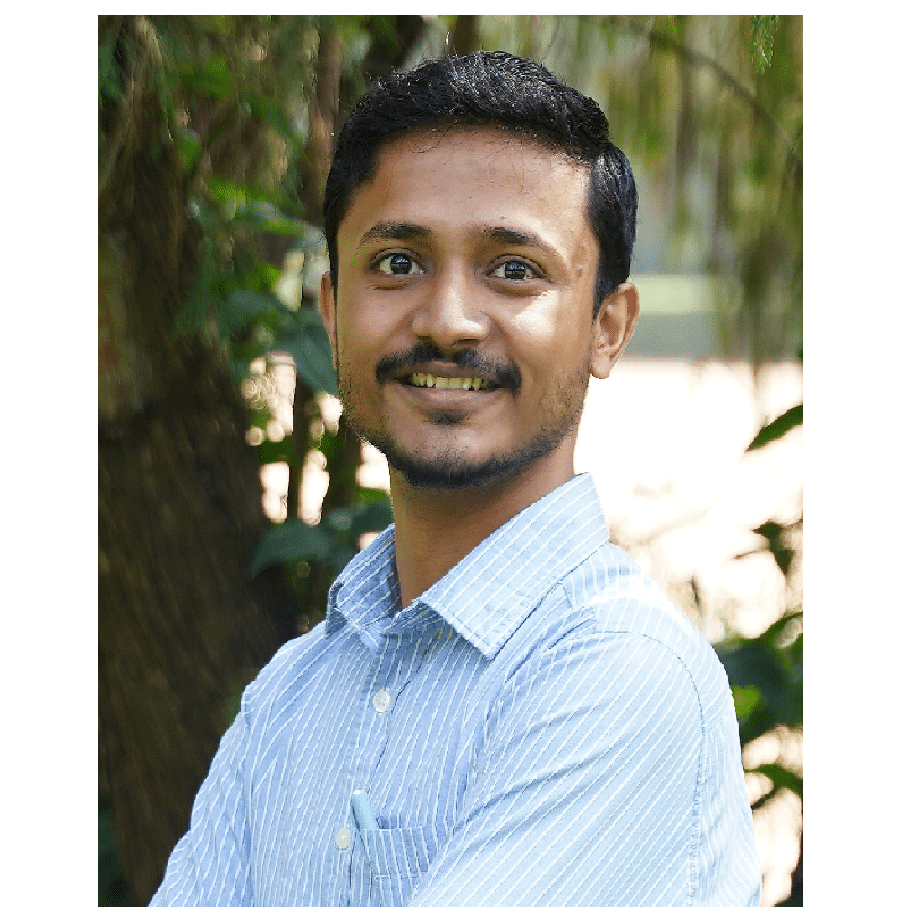
Amit Chakraborty
PhD student (NC State)
email: achakr26@ncsu.edu
Amit earned his B.Sc. (Honours) in Chemistry from Maulana Azad College, University of Calcutta, India, in 2022, where he completed an undergraduate dissertation on fluorimetric pH sensors. He received his M.S. (Research) in 2025 from the Solid State and Structural Chemistry Unit (SSCU) at the Indian Institute of Science (IISc), India. There, he investigated the fundamental properties of electrochemically doped Organic Mixed Ionic-Electronic Conductors (OMIECs) through operando characterization techniques. Amit is currently pursuing his Ph.D. (Electrical Engineering) in the Gkoupidenis Group at NC State University, focusing on the development of organic neuroelectronic devices for biorealistic applications.

Christian Clark
PhD student (NC State)
email: csclark4@ncsu.edu
Christian received his Bachelor’s degree (2025) in Electrical Engineering from North Carolina State University with Suma Cum Laude honors. While pursuing his undergraduate degree, he joined the Accelerated Bachelor’s/Master’s Program, enabling him to complete undergraduate and graduate courses simultaneously. Throughout his undergraduate career, Christian worked as a teaching assistant for Electric Circuits and Microelectronics, both of which are required courses for all EE and CPE majors at NC State. This valuable experience not only solidified his love for working with others, but it also revealed his passion for device physics and analog circuit design. As he was pursing his bachelor’s and master’s, he also began completing coursework centered on neural interface engineering. Whilst pursuing his undergraduate degree, Christian developed proficiency with Cadence software, designing low-noise amplifiers and oscillators . Working under the leadership of Dr. Gkoupidenis, Christian began his PhD in the fall of 2025, and he will be using his circuit design and microelectronics background to progress the field of Organic Neuromorphic Bioelectronics.

Jarlem Lopez Morel
Graduate student (NC State)
email: jmlopezm@ncsu.edu
Jarlem earned his Bachelor of Science degree in Physics, with honors, from Wake Forest University in 2024. During his undergraduate studies, Jarlem joined the Organic Electronics Laboratory, working on the development of Radiation Dosimeters Based on Organic Field Effect Transistors (RAD-OFETs), on which he wrote his honors thesis. Jarlem was also able to participate in the Summer Undergraduate Research Fellowship carried by the National Institute of Standards and Technology (NIST), working on Organic Electrochemical Transistors (OECTs) at NIST’s Physical Measurement Laboratory. These undergraduate research experiences laid the foundation for his interest in the applications of organic electronics in biological interfaces. He joined North Carolina State University as a PhD student in the fall of 2024, and later on joined Dr. Gkoupidenis’ group in the summer of 2025 to work on Organic Neuromorphic Electronics. His long term plan is to become a professor and increase the undergraduate and graduate research opportunities back in the Dominican Republic, his home country.
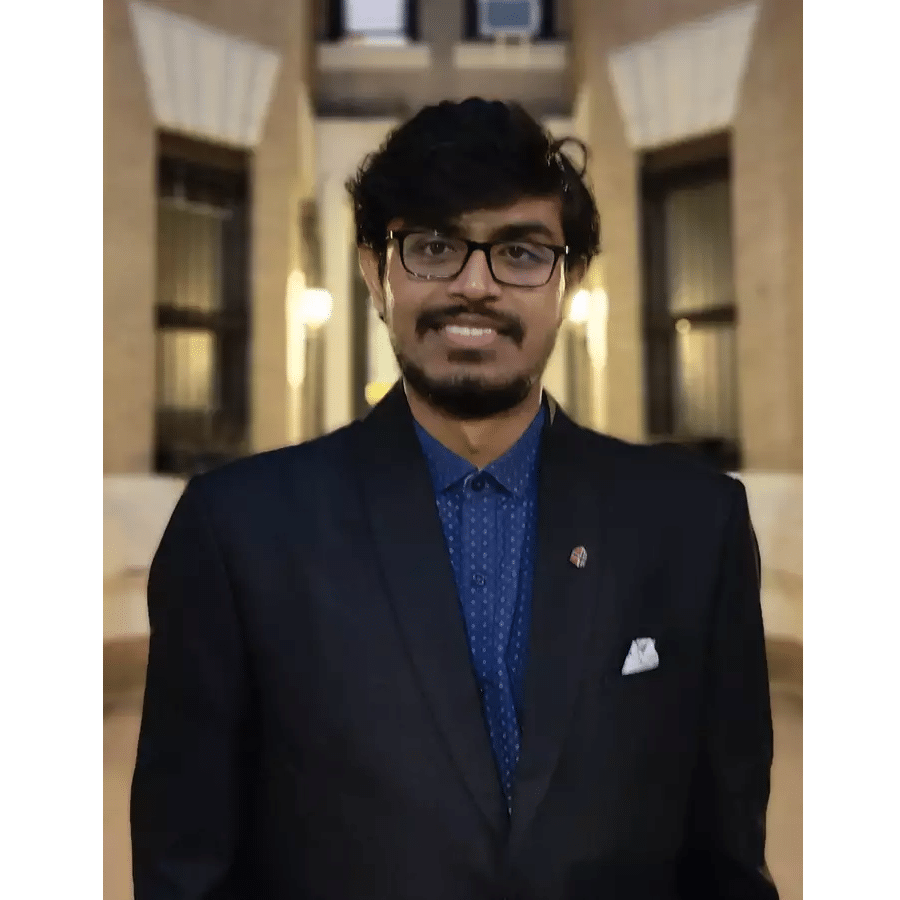
Sourabh Pal
Postdoctoral Researcher (Max Planck Institute for Polymer Research, DE)
email: pals@mpip-mainz.mpg.de
Sourabh earned his Bachelor’s (2013) and Master’s (2015) degrees in Electronic Science from the University of Calcutta, India, graduating with a Gold Medal for securing the top position. He completed his doctoral studies in Physics at the Indian Institute of Technology (IIT) Kharagpur, India, in 2022, where his research focused on metal oxide thin films, nanostructures, and hybrid heterostructures for optoelectronic and piezo-phototronic device applications, particularly in wearable and flexible platforms. In 2022, Sourabh was awarded the prestigious JSPS Postdoctoral Fellowship. He then joined Columbia University, New York, USA, as a Postdoctoral Research Scientist in the Department of Electrical Engineering in 2022. At Columbia, his research primarily centered on the development of neuromorphic devices capable of emulating the characteristics of biological synapses. By integrating advanced photo-absorbing nanomaterials, he explored the operation of phototransistors as optoelectronic synapses using both electrical and optical controls. In 2024, Sourabh received the esteemed Humboldt Postdoctoral Fellowship to continue his research at the Max Planck Institute for Polymer Research in Germany. His current research focuses on advancing organic neuromorphic electronics, pushing the boundaries of materials science and device innovation.
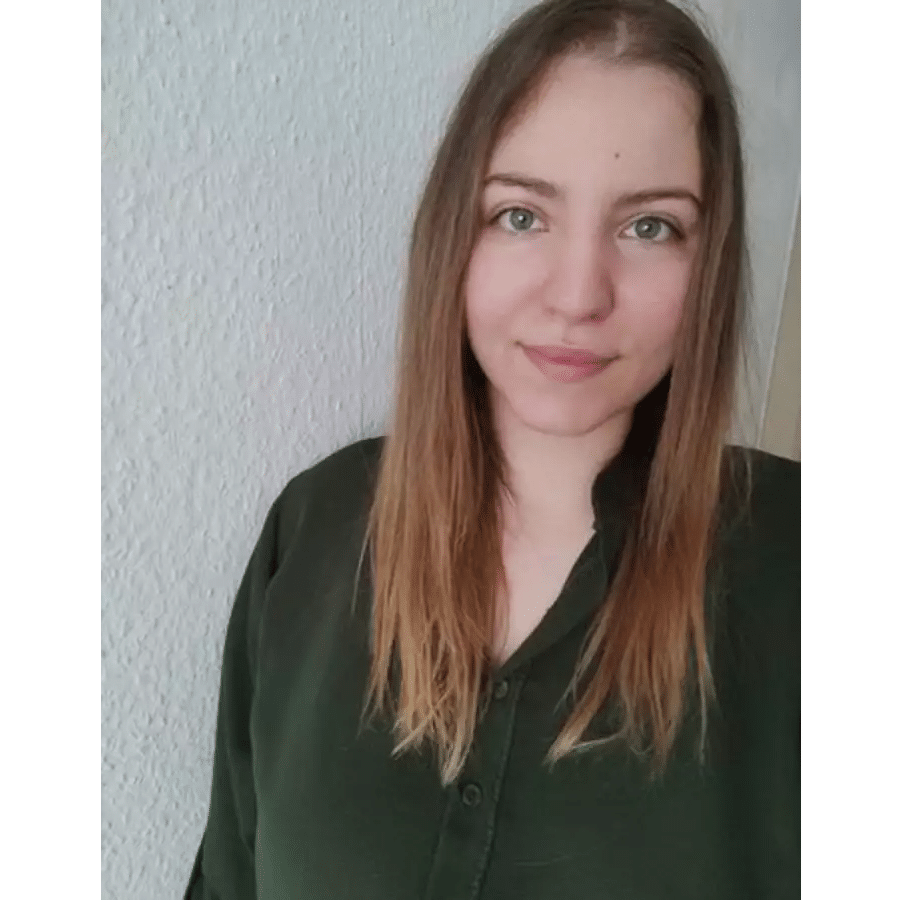
Aristea Pavlou
PhD student (Max Planck Institute for Polymer Research, DE)
email: palvoua@mpip-mainz.mpg.de
Aristea Pavlou received a BSc in Chemistry from University of Ioannina (UOI), Greece with an undergraduate thesis in Organic Photochemistry. She received her MSc with specialization in Synthetic Chemistry, Biochemistry and Bioactive compounds in the Department of Chemistry, University of Ioannina, Greece where she also worked in different research projects. Her main project was the development of new aqueous nanoparticles of conjugated polymers for bioimaging as fluorescent probes in collaboration with the National Hellenic Foundation of Research (Athens), the division of Biomedical Research of the Institute of Molecular Biology and Biotechnology Foundation for Research and Technology-Hellas (FORTH-IMBB, Ioannina) and the Department of Materials and Science Engineering (UOI). Currently, she is working on her PhD at the Max Planck Institute for Polymer Research.
Alumni
Debdatta Panigrahi, Postdoc (Now at MPI for Polymer Research, DE)